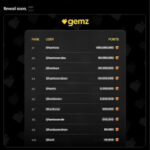The Pittsburgh Penguins are in a precarious position. The franchise has been blessed for decades with Mount Rushmore-level players such as Mario Lemieux and Sidney Crosby, and supported by future Hall of Famers like Jaromir Jagr, Evgeni Malkin and Kris Letang. Whether the team was good, there was always the chance that something special would occur on a nightly basis.
For years, the Penguins were the class of the NHL: brilliant playoff series against the Washington Capitals, incredible Game 7 victories and three Stanley Cups in four Cup Final appearances in the salary cap era (since 2005-06). There is an argument to be made that they have been the most consistently successful team in the cap era.
Now, things are different. Gone are the days of Stanley Cup expectations, and the playoffs are a stretch.
What should management do in the short and medium term to get this team back in contention? Make some additions this year for another kick at the can with the core veterans? Begin the process of building more for the future? Or try to thread the needle and do both?

ONE THING REMAINS consistent from the dominant era: The Penguins are being carried by players who will soon have their number in the rafters. Sidney Crosby and Evgeni Malkin are scoring nearly a point per game in the twilight of their careers.
However, Crosby’s even-strength value ranks the worst in his illustrious career, just above break-even. Malkin has never been a defensive stalwart, but he’s losing the expected goals and scoring-chance battle by more than 10% this season. While both players are producing admirably, the Penguins need them to win their minutes on a more consistent basis.
Rickard Rakell has been excellent, providing tangible value on both sides of the puck at even strength. He’s projected for 52 points this season, a total that would be the third best of his 12-year career. His resurgence playing alongside Crosby has helped the Penguins find their footing over the past fortnight.
Meanwhile, Bryan Rust’s production has dropped by 25%, and his defensive numbers have him as the worst defensive forward in the NHL this season. Drew O’Connor is struggling to produce offense and is bottom-five in even-strength defensive value.
The team has an air of nonchalance in their play, with careless turnovers, not finishing checks and fly-bys prevalent in all three zones. That can come with losing, but those are not habits that lead to winning. Even when the Penguins win, it is never comfortable. The Calgary Flames scored two quick goals in the third period this past Saturday, and you could feel the tension in the building. On Tuesday, the Penguins coughed up a 4-1 lead in the third period and needed an OT winner from Rust to take two points.
They are starting to win games, albeit in an unsustainable manner, and rank seventh by points percentage in the Metropolitan Division.
0:38
Bryan Rust wins it for the Pens in OT with a wrister
Bryan Rust glides toward the net and scores on a wrister to give the Penguins an overtime win over the Panthers.
THE BIGGEST ISSUE is that every player mentioned except for O’Connor — who is better suited for a bottom-six role — is above the age of 30. The Penguins are old in NHL terms, relying on their legends to prop them up, and Father Time is catching up. On Saturday, the Penguins dressed only two players aged 25 or younger. Teams achieve sustained success when they are able to inject young players in the lineup to complement veterans and continue the cycle.
The Boston Bruins added David Pastrnak and Charlie McAvoy to their core of Patrice Bergeron, Brad Marchand and Zdeno Chara. There doesn’t appear to be a Pastrnak-level player available to the Penguins, unless they pick in the top 10 of the upcoming draft.
Owen Pickering has taken a step forward this season and has shown signs he can become a quality top-four defenseman. Joel Blomqvist seems to be developing into an NHL starter. The acquisitions of Philip Tomasino and Cody Glass were good ones, and signal that GM Kyle Dubas is employing a different approach than a typical rebuild.
Crosby, Malkin, Letang and Karlsson are too good for the team to bottom out but aren’t good enough to carry a team on their own. Surrounding them with young NHL players who bring speed, skill and tenacity increases the potential of success. It is much more complex than a teardown and rebuild, but Dubas has made a few shrewd moves to begin the process.
Should the Penguins have interest in continuing that path, there are two player archetypes to target in trades: the young player needing a change of scenery because he’s buried or not getting the opportunity in his current organization (as applies to Tomasino) or an AHL prospect that is on the cusp of making the NHL, who the Penguins believe could play sooner than with his current team (McGroarty).
More importantly, given the makeup of the Penguins’ lineup, contending teams will likely have interest in their veterans that need to be moved out as part of this process:
-
Anthony Beauvillier is providing value on both sides of the puck and could prove to be a savvy acquisition for a playoff-bound team.
-
O’Connor has proven to be a versatile player capable of providing depth for a playoff team.
-
Noel Acciari and Blake Lizotte each have a year remaining on their contracts at reasonable numbers for fourth-line players who bring physicality and defensive value to a contending team.
Each of those players could likely return a mid-round pick or young player that has fallen out of favor. Tomasino was acquired for a fourth-round pick, and given the price for depth players at trade deadline, Dubas offloading players for picks (Lars Eller), and flipping those picks for players like Tomasino is tidy business.
Marcus Pettersson is generating interest from Vancouver and should have other suitors as a pending free agent currently in a top-pairing role. Vancouver could have interest in Lizotte and/or Acciari, given the need to improve the bottom-six. Nils Hoglander is a player Pittsburgh has interest in, and fits the mold of a young player fallen out of favor with his current club who would benefit from a change of scenery.
While it would surely be more than Hoglander heading back to Pittsburgh for Pettersson, perhaps Pittsburgh would have interest in Sawyer Mynio, Nils Aman or Danila Klimovich. Hoglander’s value has tanked given his lack of ice time and production this season, and the Penguins should expect to get more than five-point player averaging under 12 minutes for a defenseman who has performed admirably in a top-pairing role this season.
The price for defensemen at trade deadline is outrageous. Bottom-pairing blueliners such as Joel Edmundson, Ilya Lyubushkin, Chad Ruhwedel, Andrew Peeke, Colin Miller and Erik Johnson all returned picks in the third or fourth rounds. Pettersson is going to be one of the best defensemen available at the deadline, allowing Pittsburgh to command a hefty price for the pending free agent.
THERE ARE A FEW players who fit the pattern of players the Penguins would like to add, with Glass, Tomasino and McGroarty already acquired. Hoglander, as noted, seems to make the most sense. The Toronto Maple Leafs have their sights set on a deep playoff run and may be willing to part with Nick Robertson for a player they believe can help them win. Nashville’s Luke Evangelista and Montreal’s Jayden Struble or Justin Barron also come to mind as players who may benefit from a change of scenery.
Each of those players is 23 or younger, and has demonstrated potential to play a bigger role than their current situation.
Then, there is Trevor Zegras. The former cover athlete of NHL 23, Zegras seems to have fallen out of favor in Anaheim after a contractual dispute that delayed the start of his 2023-24 season. Zegras played only 31 games last season, a disappointing outcome for the 22-year-old and the Ducks. His overall value has steadily declined since the contract dispute; he’s projected for just 38 points this season.
Originally viewed as a top-six, playmaking center with dazzling skill, Zegras now finds himself on the wing. Anaheim has quite the cupboard of impressive young players up front (Leo Carlsson, Mason McTavish, Cutter Gauthier, Beckett Sennecke) and a change of scenery for Zegras might help him find the point-per-game pace of which he’s capable. He’s exactly the type of player that Pittsburgh should covet: a player with sky-high potential and proven ability to play top-six minutes in the NHL. Complicating matters, Zegras sustained a lower-body injury on Wednesday, so a trade might have to wait until the offseason.
The Ottawa Senators are a curious case. It seems that a core player may be on the move, whether that’s now or in the offseason. Could one of Josh Norris or Shane Pinto be a fit for Pittsburgh down the middle? Jacob Bernard-Docker is getting squeezed on the blue line and could step in on Pittsburgh’s right side. Again, if the Senators are looking to make a move.
The Dallas Stars are a contender and will be without Tyler Seguin for the remainder of the season. Given the significant LTIR space that opens, could a much larger trade materialize, allowing the Penguins to land one of Logan Stankoven, Mavrik Bourque or Thomas Harley? If the Stars want to add a major player, the Penguins might be the perfect trade partner.
To be clear: Pittsburgh will not trade any of its franchise legends without being asked by that player to do so. They must do right by them, and Dubas has a track record of doing so. There will surely be interest if Crosby or Malkin want out, and Pittsburgh will have an opportunity to recoup significant assets for them. That day has not arrived yet, but Dallas is a team to watch if it does.
Regardless of which players the Penguins acquire, none of it will matter if the organization doesn’t buy in from top to bottom. The young players need long runs in offensive roles to build confidence, learn from their mistakes and develop. Tomasino and Glass need to play in key situations, on special teams and develop into all-around players. Pickering should get an increased role if Pettersson is moved. When other young players are acquired, they need the same opportunity.
A teardown and rebuild from the bottom is much easier than navigating the task that Dubas and his staff have here now. Skill does not evaporate into thin air, and if young players can rejuvenate the lineup at reduced cap hits, perhaps the Penguins will be competitive sooner rather than later.






